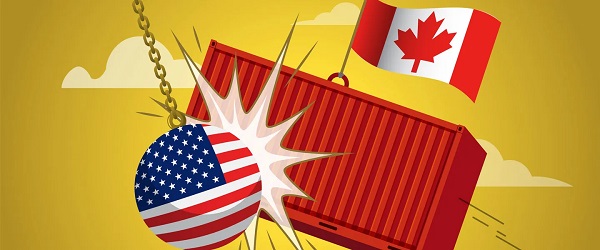Alberta
Province will pour in all the resources necessary to beat this COVID-19 downturn

From the Province of Alberta
Protecting Alberta’s families and economy
Government is providing immediate financial assistance to Albertans affected by the COVID-19 crisis.
New funding and supportive measures will provide immediate financial relief to Alberta’s families, vulnerable populations, local businesses and employers.
“Albertans are doing their part to keep each other safe and prevent the spread of COVID-19. We are doing ours by assisting Albertans and their families, protecting jobs and supporting workers and employers. We will help shelter Albertans from the economic disruption of COVID-19 now, and position Alberta’s industry and businesses to bounce back when the situation stabilizes. This is an initial set of measures, and more will follow in the days to come.”
Financial supports for Albertans
Albertans should be focused on their health and not worry about whether they can pay their bills, so the government has put a number of options in place for those struggling financially:
- Emergency Isolation Support: $50 million
- This will be a temporary program for working adult Albertans who must self-isolate because they meet the Government of Alberta’s published criteria for self-isolation, including persons who are the sole caregiver for a dependent who must self-isolate because they meet the public health criteria, and who will not have another source of pay or compensation while they are self-isolated.
- It will be distributed in one payment instalment and will bridge the gap until the federal emergency payments begin in April.
- We expect the program to be accessible by a simple online application through alberta.ca next week and that funds will be deposited in the accounts of eligible recipients beginning at that time.
- Utility payment holiday
- Residential, farm, and small commercial customers can defer bill payments for the next 90 days to ensure no one will be cut off from these services during this time of crisis.
- This will cover electricity and natural gas, regardless of the service provider.
- Student loans repayment holiday
- The government will implement a six-month, interest-free moratorium on Alberta student loan payments for all individuals who are in the process of repaying these loans.
Banks and credit unions
- ATB Financial customers impacted by COVID-19
- Personal banking customers can apply for a deferral on their ATB loans, lines of credit, and mortgages for up to six months.
- Small business customers, in addition to payment deferrals on loans and lines of credit, will be provided access to additional working capital.
- For other business and agriculture customers, ATB will work with customers on a one-on-one basis and further solutions are being considered at this time.
- For more information on ATB’s relief program, please visit their website.
- Alberta credit unions
- Credit union members will have access to a variety of programs and solutions designed to ease difficulties with loan payments and short-term cash flow.
- Both individual and business members are encouraged to proactively contact their credit union directly to work out a plan for their personal situation.
Employers
Alberta employers are facing significant challenges and uncertainty. To give them increased access to cash in order to pay employees, address debts and continue operations, the government will:
- defer the collection of corporate income tax balances and instalment payments, due after today, until Aug. 31, 2020. This gives Alberta businesses access to about $1.5 billion in funds to help them cope with the COVID-19 crisis.
“In these exceptional circumstances, having cash on hand is vital to families and employers and it’s critical we give Albertans this certainty and support. This tax measure will provide timely relief and additional runway for businesses to continue operating and compensating their employees during this difficult time.”
Alberta is pleased the federal government has responded to concerns and has taken the recommendation to increase supports to people receiving Employment Insurance. Alberta has contributed far more to the federal government in employment insurance (EI) premiums than it receives in EI support, so it is good to see the federal government providing the support Albertans need in these difficult times.
Relief measures already in place
Albertans, seniors and vulnerable groups
- Charitable and non-profit groups will immediately receive an additional $60 million to support seniors and other vulnerable populations disproportionately affected by COVID-19. This is in addition to the $3.9 billion for community and social services allocated in Budget 2020.
Health care for Albertans
- The Government of Alberta has committed $500 million extra this year to respond to the public health crisis and to support front-line health professionals working to keep Albertans safe and healthy. This is in addition to the record-high $20.6 billion allocated for health care in Budget 2020. A further $58 million has been allocated to Alberta health care for COVID-19 response by the federal government.
Alberta
Made in Alberta! Province makes it easier to support local products with Buy Local program

Show your Alberta side. Buy Local. |
When the going gets tough, Albertans stick together. That’s why Alberta’s government is launching a new campaign to benefit hard-working Albertans.
Global uncertainty is threatening the livelihoods of hard-working Alberta farmers, ranchers, processors and their families. The ‘Buy Local’ campaign, recently launched by Alberta’s government, encourages consumers to eat, drink and buy local to show our unified support for the province’s agriculture and food industry.
The government’s ‘Buy Local’ campaign encourages consumers to buy products from Alberta’s hard-working farmers, ranchers and food processors that produce safe, nutritious food for Albertans, Canadians and the world.
“It’s time to let these hard-working Albertans know we have their back. Now, more than ever, we need to shop local and buy made-in-Alberta products. The next time you are grocery shopping or go out for dinner or a drink with your friends or family, support local to demonstrate your Alberta pride. We are pleased tariffs don’t impact the ag industry right now and will keep advocating for our ag industry.”
Alberta’s government supports consumer choice. We are providing tools to help folks easily identify Alberta- and Canadian-made foods and products. Choosing local products keeps Albertans’ hard-earned dollars in our province. Whether it is farm-fresh vegetables, potatoes, honey, craft beer, frozen food or our world-renowned beef, Alberta has an abundance of fresh foods produced right on our doorstep.
Quick facts
- This summer, Albertans can support local at more than 150 farmers’ markets across the province and meet the folks who make, bake and grow our food.
- In March 2023, the Alberta government launched the ‘Made in Alberta’ voluntary food and beverage labelling program to support local agriculture and food sectors.
- Through direct connections with processors, the program has created the momentum to continue expanding consumer awareness about the ‘Made in Alberta’ label to help shoppers quickly identify foods and beverages produced in our province.
- Made in Alberta product catalogue website
Related information
Alberta
Province to expand services provided by Alberta Sheriffs: New policing option for municipalities

Expanding municipal police service options |
Proposed amendments would help ensure Alberta’s evolving public safety needs are met while also giving municipalities more options for local policing.
As first announced with the introduction of the Public Safety Statutes Amendment Act, 2024, Alberta’s government is considering creating a new independent agency police service to assume the police-like duties currently performed by Alberta Sheriffs. If passed, Bill 49 would lay additional groundwork for the new police service.
Proposed amendments to the Police Act recognize the unique challenges faced by different communities and seek to empower local governments to adopt strategies that effectively respond to their specific safety concerns, enhancing overall public safety across the province.
If passed, Bill 49 would specify that the new agency would be a Crown corporation with an independent board of directors to oversee its day-to-day operations. The new agency would be operationally independent from the government, consistent with all police services in Alberta. Unlike the Alberta Sheriffs, officers in the new police service would be directly employed by the police service rather than by the government.
“With this bill, we are taking the necessary steps to address the unique public safety concerns in communities across Alberta. As we work towards creating an independent agency police service, we are providing an essential component of Alberta’s police framework for years to come. Our aim is for the new agency is to ensure that Albertans are safe in their communities and receive the best possible service when they need it most.”
Additional amendments would allow municipalities to select the new agency as their local police service once it becomes fully operational and the necessary standards, capacity and frameworks are in place. Alberta’s government is committed to ensuring the new agency works collaboratively with all police services to meet the province’s evolving public safety needs and improve law enforcement response times, particularly in rural communities. While the RCMP would remain the official provincial police service, municipalities would have a new option for their local policing needs.
Once established, the agency would strengthen Alberta’s existing policing model and complement the province’s current police services, which include the RCMP, Indigenous police services and municipal police. It would help fill gaps and ensure law enforcement resources are deployed efficiently across the province.
Related information
-

 espionage2 days ago
espionage2 days agoEx-NYPD Cop Jailed in Beijing’s Transnational Repatriation Plot, Canada Remains Soft Target
-

 2025 Federal Election2 days ago
2025 Federal Election2 days agoBREAKING from THE BUREAU: Pro-Beijing Group That Pushed Erin O’Toole’s Exit Warns Chinese Canadians to “Vote Carefully”
-

 Daily Caller2 days ago
Daily Caller2 days agoTrump Executive Orders ensure ‘Beautiful Clean’ Affordable Coal will continue to bolster US energy grid
-

 Daily Caller2 days ago
Daily Caller2 days agoDOJ Releases Dossier Of Deported Maryland Man’s Alleged MS-13 Gang Ties
-

 2025 Federal Election2 days ago
2025 Federal Election2 days agoAllegations of ethical misconduct by the Prime Minister and Government of Canada during the current federal election campaign
-

 John Stossel2 days ago
John Stossel2 days agoClimate Change Myths Part 1: Polar Bears, Arctic Ice, and Food Shortages
-

 Business2 days ago
Business2 days agoChina, Mexico, Canada Flagged in $1.4 Billion Fentanyl Trade by U.S. Financial Watchdog
-

 Opinion2 days ago
Opinion2 days agoLeft Turn: How Viet Nam War Resisters Changed Canada’s Political Compass








